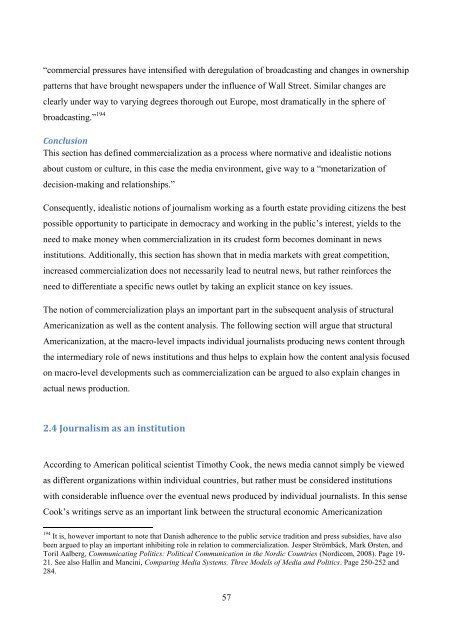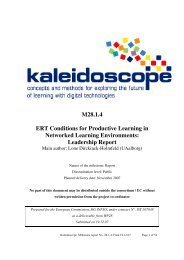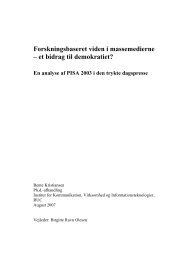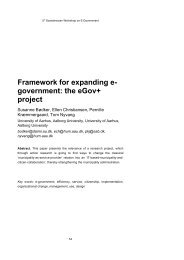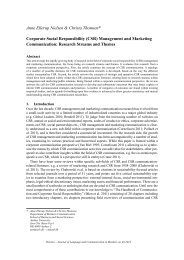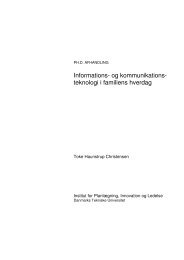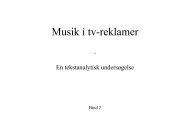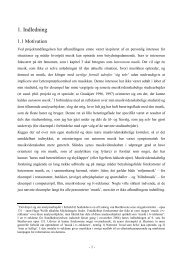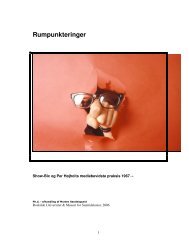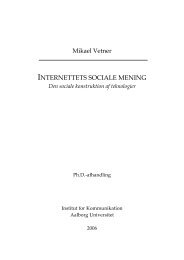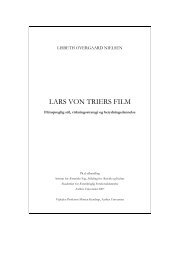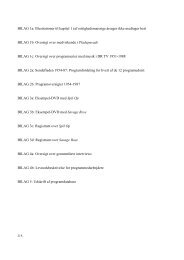The Jeremiad Over Journalism
The Jeremiad Over Journalism
The Jeremiad Over Journalism
Create successful ePaper yourself
Turn your PDF publications into a flip-book with our unique Google optimized e-Paper software.
―commercial pressures have intensified with deregulation of broadcasting and changes in ownership<br />
patterns that have brought newspapers under the influence of Wall Street. Similar changes are<br />
clearly under way to varying degrees thorough out Europe, most dramatically in the sphere of<br />
broadcasting.‖ 194<br />
Conclusion<br />
This section has defined commercialization as a process where normative and idealistic notions<br />
about custom or culture, in this case the media environment, give way to a ―monetarization of<br />
decision-making and relationships.‖<br />
Consequently, idealistic notions of journalism working as a fourth estate providing citizens the best<br />
possible opportunity to participate in democracy and working in the public‘s interest, yields to the<br />
need to make money when commercialization in its crudest form becomes dominant in news<br />
institutions. Additionally, this section has shown that in media markets with great competition,<br />
increased commercialization does not necessarily lead to neutral news, but rather reinforces the<br />
need to differentiate a specific news outlet by taking an explicit stance on key issues.<br />
<strong>The</strong> notion of commercialization plays an important part in the subsequent analysis of structural<br />
Americanization as well as the content analysis. <strong>The</strong> following section will argue that structural<br />
Americanization, at the macro-level impacts individual journalists producing news content through<br />
the intermediary role of news institutions and thus helps to explain how the content analysis focused<br />
on macro-level developments such as commercialization can be argued to also explain changes in<br />
actual news production.<br />
2.4 <strong>Journalism</strong> as an institution<br />
According to American political scientist Timothy Cook, the news media cannot simply be viewed<br />
as different organizations within individual countries, but rather must be considered institutions<br />
with considerable influence over the eventual news produced by individual journalists. In this sense<br />
Cook‘s writings serve as an important link between the structural economic Americanization<br />
194 It is, however important to note that Danish adherence to the public service tradition and press subsidies, have also<br />
been argued to play an important inhibiting role in relation to commercialization. Jesper Strömbäck, Mark Ørsten, and<br />
Toril Aalberg, Communicating Politics: Political Communication in the Nordic Countries (Nordicom, 2008). Page 19-<br />
21. See also Hallin and Mancini, Comparing Media Systems. Three Models of Media and Politics. Page 250-252 and<br />
284.<br />
57


